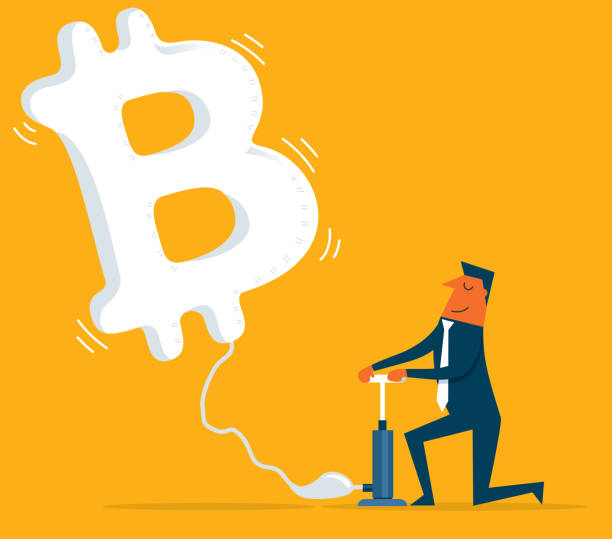Most of the discussion in the past year has been on virtual currency. The growing circulation of virtual currency in India had become a matter of concern for some. Bitcoin and other virtual currencies like it fluctuate rapidly as it is out of the control of any government or regulatory body. Even globally, there is no consensus among any country on investing in virtual currencies. Some countries have adopted virtual currency. Even a country like China has imposed a total ban.
The Reserve Bank of India (RBI) has also said it is committed to introducing its own digital currency. But the blockchain is trying to bring a centralized currency reserve bank using the same basic technology. He will not have a decent form like manipulation. Digitalization of money cannot be a hoax. The program was introductory by Siddharth Khandekar, Senior Assistant Editor, Loksatta, and Sachin Rohekar, Assistant Editor, coordinated the program.
No technology in the world comes with its own merits and demerits and is not immediately accepted. The Internet was first introduced to the world in 1990. But people were afraid to use that technology. It was also said that even when computers were invented in the world, there was no need for more than five computers in the world. But today computers are used in every corner of the world. After the invention of the vehicle by the tractor automotive sector, the question arose as to what vehicles are needed when traditional means of transport are available. It was feared that all the houses would burn due to the use of electricity. However, he insisted that their use has revolutionized the world.
Any technology is ‘neutral’. It is absolute, that is, it does not discriminate against anyone. Initially, technology is used to meet the needs of the lower class. This means that the driver’s job will be jeopardized if an automatic vehicle is introduced. Once large machines are used in factories, the need for labor will disappear. But blockchain technology works just the opposite. It works to break the monopoly of intermediaries, connecting the umbilical cord of the customer directly to the service-product makers. Because no one can interfere in this technology.
Its success depends on how blockchain technology is used. Initially, the Internet was also used for undesirable purposes. But then the rules came and it was used for good.
What is the future of crypto?
Bitcoin has no built-in value, its value is in the exchange value it receives. Therefore, its true value cannot be known unless it is used all over the world. Currently, the value of Bitcoin has increased irrationally and it depends on the insane emotions of the people. Perhaps the value could reach a reasonable level if its acceptance increases and universal use begins. This will lead to a sharp fall in Bitcoin or even a reasonable increase in prices if India bans the use of Bitcoin. But investing in Bitcoin should be seen as a means of exchange rather than a return.
The role of the Prime Minister
In November last year, Prime Minister Narendra Modi convened a meeting of senior officials to discuss virtual currency transactions. He has since repeated this role in at least two international telecommunications conferences. As a prelude to this, the Virtual Currency Regulation Bill, ‘Cryptocurrency and Regulation of Official Digital Currency Bill, 2021’ has been mentioned on the agenda of the Lok Sabha. However, it was not immediately clear if the bill was intended to ban the use of regulated transactions. Moreover, it showed that it would be a catalyst for the digital currency that the Reserve Bank was trying to introduce.
Sealed by budget?
While presenting the budget for the financial year 2022-23 in the Lok Sabha on Tuesday, Union Finance Minister Nirmala Sitharaman, without imposing any ban on virtual currencies, in a way gave official recognition to virtual currencies by levying taxes on them. In his budget speech, Sitharaman announced that 30 percent of the proceeds from the transfer of virtual digital assets would be taxed. This means that virtual currency as a whole has now come under the tax net and it seems clear how much tax will have to be paid on it. Secondly, a higher tax of 30 percent per income is levied.
What will be the new tax?
The central government has not mentioned the profits from digital gold, central bank digital currency (CBDC), or any other traditional digital assets. The new tax has been announced with a view to levying a special tax on virtual currencies as a whole. At the same time, investors dealing in virtual currencies are now required to report a profit or loss. Furthermore, in the event of a loss, it is not possible to deduct the loss from any source. This means that the government has set a fixed rate of 30 percent to ensure that all investors pay a percentage of their profits to the government in the form of taxes.
The tax on crypto helps to understand the ‘scope’
The Union Budget has proposed a 30 percent tax on income from virtual property transactions, which will help the income tax department to know the scope of transactions related to virtual assets, investors, and the nature of their investments. However, it did not give any legal validity to the transactions, Central Board of Direct Taxes (CBDT) chairman JB Mahapatra said on Wednesday.
The Central Government is currently in discussions with all concerned stakeholders and experts to regulate the transaction of virtual assets and to formulate a national policy. In a budget speech, Finance Minister Nirmala Sitharaman announced that virtual digital assets would be taxed, citing an unprecedented increase in transactions in virtual assets. However, the Income-tax department does not work to give legal recognition or legal framework to any transaction, but only to levy income tax, Mahapatra added.
Virtual property transactions do not become legal or regular if they are taxed. Also, when a profit or surplus is made through digital transactions, the investor has to state where he got the money to invest in it and if the investment is fair and equitable, additional tax is levied on it. If the investment is made illegally or from unaccounted for or anonymous income, action is also taken against it. Therefore, the income tax department not only looks at the income or profit received by the investor but also looks at the nature of the investment being made by the investor, said Mahapatra.
Number of investors over 10 crores
Who is currently dealing in virtual currencies? To what extent are they happening? Where are they being made from? The income tax department will take care of all this information. Provision has been made to levy one percent withholding tax (TDS) on the transfer of property. So it will help to get answers to all these questions. Provision has been made for 1 percent withholding tax on the amount payable on virtual currencies beyond Rs 10,000 per annum. At present, the number of people investing in virtual currencies in the country is said to be around 100 million. So now the income tax department is going to look at the actual number of such investors. We want to understand that transaction and bring transparency in the transaction by removing the opacity in it, said Mahapatra.
















